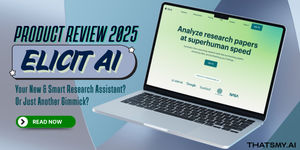Elon Musk's company xAI has introduced the Colossus AI Training System, a groundbreaking development that has set new records in AI training speed and efficiency. Colossus helps AI models learn faster by processing large amounts of data quickly, meaning new AI applications can reach us sooner. This advancement is significant because it makes AI more accessible and trustworthy, especially with xAI's focus on explainable AI that can clarify its decisions. Elon Musk's vision with xAI is to ensure that AI benefits humanity, and the impact of Colossus spans various fields, promising improvements that can benefit society as a whole.

Elon Musk’s xAI has launched a groundbreaking AI training system known as Colossus, a supercomputer featuring a staggering 100,000 Nvidia H100 GPUs.
This technological marvel, brought online in just 122 days, is now considered the most powerful AI training system globally. Designed to push the boundaries of artificial intelligence, Colossus aims to accelerate xAI's research, specifically in the development of generative AI models, such as their chatbot Grok.
Elon Musk’s xAI aims to create advanced AI systems that can help solve complex problems and make our lives better.
The Colossus AI Training System is xAI's latest achievement. Think of it as a supercomputer designed to teach AI models new things quickly and efficiently.
It's like a high-speed tutor for AI, helping them learn from vast amounts of data in record time.
Recently, Colossus set new benchmarks for how fast and effectively an AI system can be trained. It managed to teach an AI model to understand and generate human-like text faster than any other system before.
This is a big deal because it means we can develop smarter AI technologies much quicker than in the past.
Training AI models usually takes a lot of time and resources. By speeding up this process, Colossus can help bring new AI applications to us sooner. This could lead to:
Smarter Virtual Assistants: Imagine voice assistants that understand you better and can handle more tasks.
Improved Customer Service: Chatbots that can solve your problems more effectively.
Advancements in Healthcare: AI that can help doctors detect diseases earlier.
Elon Musk has always been interested in AI and its impact on humanity. With xAI, he wants to ensure that AI is developed responsibly and benefits everyone. By focusing on explainable AI—AI that can explain how it makes decisions—xAI aims to build trust between humans and machines.
Not all AI systems can tell us how they make decisions, which can be a problem, especially in important fields like medicine or finance.
xAI's focus on explainable AI means creating systems that can show us their thought process. This transparency helps people trust and understand AI better.
Despite its impressive technical achievements, Colossus has sparked some controversy. Environmental groups in Memphis, where the supercomputer is located, have raised concerns about its impact on local infrastructure, particularly regarding the strain on electricity and water supplies.
The system’s cooling requirements are significant, and critics are calling for more scrutiny into its environmental footprint. In response, xAI has committed to addressing these concerns and supporting infrastructure improvements to mitigate any negative effects.
Colossus tackles these problems by using advanced hardware and smart programming to speed up training. It can handle large amounts of information without slowing down, allowing it to train complex AI models more quickly and efficiently. This means less time waiting and more time making advancements.
With faster training times, new AI technologies can reach us sooner. Here are some areas that could benefit:
Healthcare: AI can help analyze medical images to detect diseases early.
Transportation: Self-driving cars can become safer and more reliable.
Energy: AI can optimize energy use, saving resources and reducing costs.
By focusing on explainable AI, xAI is helping to build trust between humans and machines. When an AI can explain its decisions, people feel more comfortable using it, especially in critical areas like healthcare and finance. This approach aligns with Elon Musk's goal of ensuring AI benefits humanity.
The success of Colossus shows that we can expect faster and more accessible AI development. Smaller companies and researchers might be able to create advanced AI without needing huge resources. This could lead to more innovation and solutions to complex problems.
Advancements like Colossus can have a big impact worldwide. They can lead to new jobs, industries, and help countries solve big challenges like climate change by using AI to find efficient solutions.
As xAI continues to scale Colossus, the future of AI looks increasingly dependent on such vast computational systems. The implications for the broader AI ecosystem are profound, with questions arising about the accessibility of these tools for smaller organizations and independent researchers.
Sign up to gain AI-driven insights and tools that set you apart from the crowd. Become the leader you’re meant to be.
Start My AI Journey
ThatsMyAI
20 March 2025

ThatsMyAI
7 March 2025